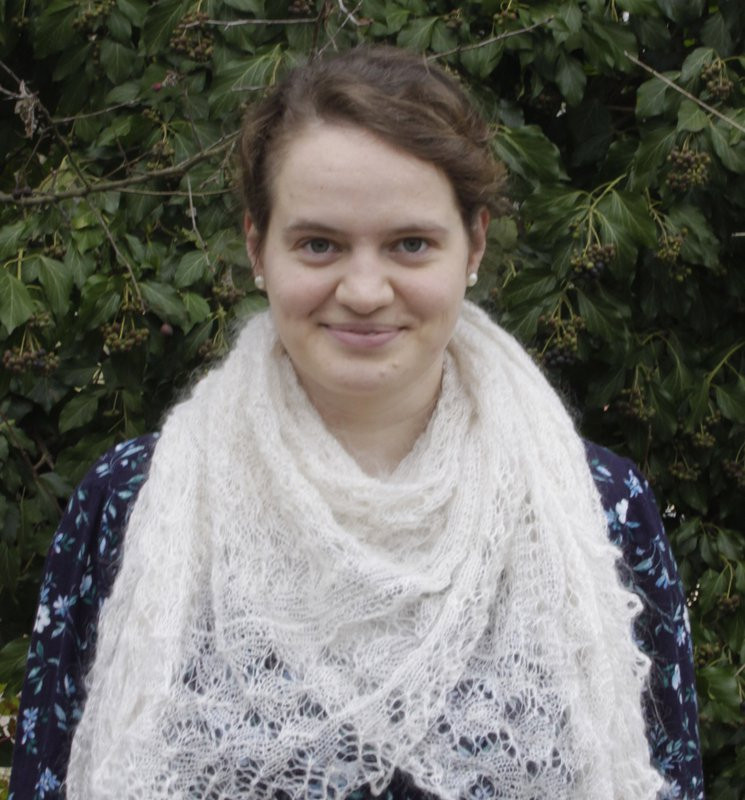
For our weekly “Ideas on Europe” editorial by UACES, the University Association for European Studies, we have the pleasure to welcome again Mechthild Roos, from the University of Augsburg, in Germany. Bonjour, Mechthild!
You have worked on refugees and asylum policies previously – how do you evaluate the current context of Russia’s war in Ukraine, which has forced about five million people to leave their home country already ?
What we mostly hear is that many European countries have taken in Ukrainian refugees with open arms. In very little time and despite limited preparedness, public administration and manifold private actors have organised accommodation, food and care for unprecedented numbers of refugees, which is amazing.
The open arms extended to them throw, however, a shadow on groups of persons that are standing, or being pushed, in the background …
Who do you mean by that ?
Several groups actually. There are those who are coming to the same European countries from different countries of origin, seeking protection because they are similarly threatened by forces beyond their control and choice, although these forces may not have the well-known face of Vladimir Putin. And then there are those who fled to Europe at some point in the recent past, say, over the course of the last decade. Who were granted some – often temporarily limited – form of residence, in systems that seemed quite a lot less welcoming than they appear to be now …
Well, there was no war on the European continent. People feel very concerned by what is happening now.
You are right, there was no war in the neighbourhood. But rules determining access to protection are not, and should not be, written for a specific context. Our solidarity should not be limited to those whom we feel close to, geographically or culturally or by whatever measure. Article 20 of the EU Charter of Fundamental Rights – which is legally binding in all EU member states – stipulates that “Everyone is equal before the law”. Not every European, but every-one.
When it comes to granting asylum, concepts like “open arms”, spontaneous solidarity and compassion are a risky basis. Asylum should, in my opinion, not be guided by compassion, but by a firm, fair, reliable set of rules. Compassion and solidarity are great, but not reliable. Open arms can be closed again, without warning, without justification, and, most importantly, without any reliable way for those in need of protection to open them again. This is the second major problem I see in current European responses to Ukrainian refugees: not just the fact that these responses relegate non-Ukrainians. But the fact that what even Ukrainian refugees experience is not so much legally enshrined protection, but grace.
It also seems problematic to me when citizens are called to help out in good faith a system that is not sufficiently able to cope with numbers of forced migrants. They may volunteer in a first phase of compassion and outrage – but what about the rights of those coming in search of protection after this first phase has passed, when volunteering fatigue sets in, or worse yet: when anti-immigrant sentiments begin to spread? Those coming then have precisely the same claims and needs as those who arrived some months or even just weeks earlier, but get treated entirely differently. You see, the compassion approach cannot provide fairness, equity, or any guarantee of fulfilling legal claims.
But over the last weeks, the European response was also a state-led response. There were very swift changes in the rules governing the rights of Ukrainian refugees across the EU.
Sure – Poland, for instance, granted them the same access to its healthcare system as Polish national citizens. France and Germany introduced a special legal status for Ukrainian refugees, giving them temporary protection without the usual lengthy process of an asylum application.
And then, there’s the EU Temporary Protection Directive, which provides for a range of rights and tools granting a certain group of persons – now: Ukrainian refugees – swift access to national labour markets, welfare and education systems. But that’s precisely where the problem lies: as much as these extraordinary rules have been granted to Ukrainian refugees now, as much have they been denied to others. Which means that they could be denied to Ukrainians also, as soon as public and political discourses shift. Which they will, most probably, as they always have during comparable phases in the past. Which means, again, that these rules – in their extraordinary character – are not reliable, not sustainable, and not generally and equally enforceable. This makes protection available not based on rights and claims, but on goodwill – which runs contrary to the rule of law principle which is also enshrined in the EU Charter of Fundamental Rights.
So, in your opinion, what needs to be done ?
We need first and foremost a rights-based approach, both at the EU and individual national level, one that cannot be shaken by discursive shifts and politicisation processes. But also one that takes into consideration that, sadly, we live in times in which we have to expect large-scale migratory movements of persons seeking protection as normal occurrence rather than exception. These persons should not meet overwhelmed incorporation systems relying on volunteers, but prepared ones, which are capable of legally granting each and every one the help and opportunity for integration which they require.
Many thanks, Mechthild, for sharing your doubts and reflexions with us.
“Ideas on Europe” will be back next week, and we will welcome Nick Startin again, from the University of Bath, in the UK.





